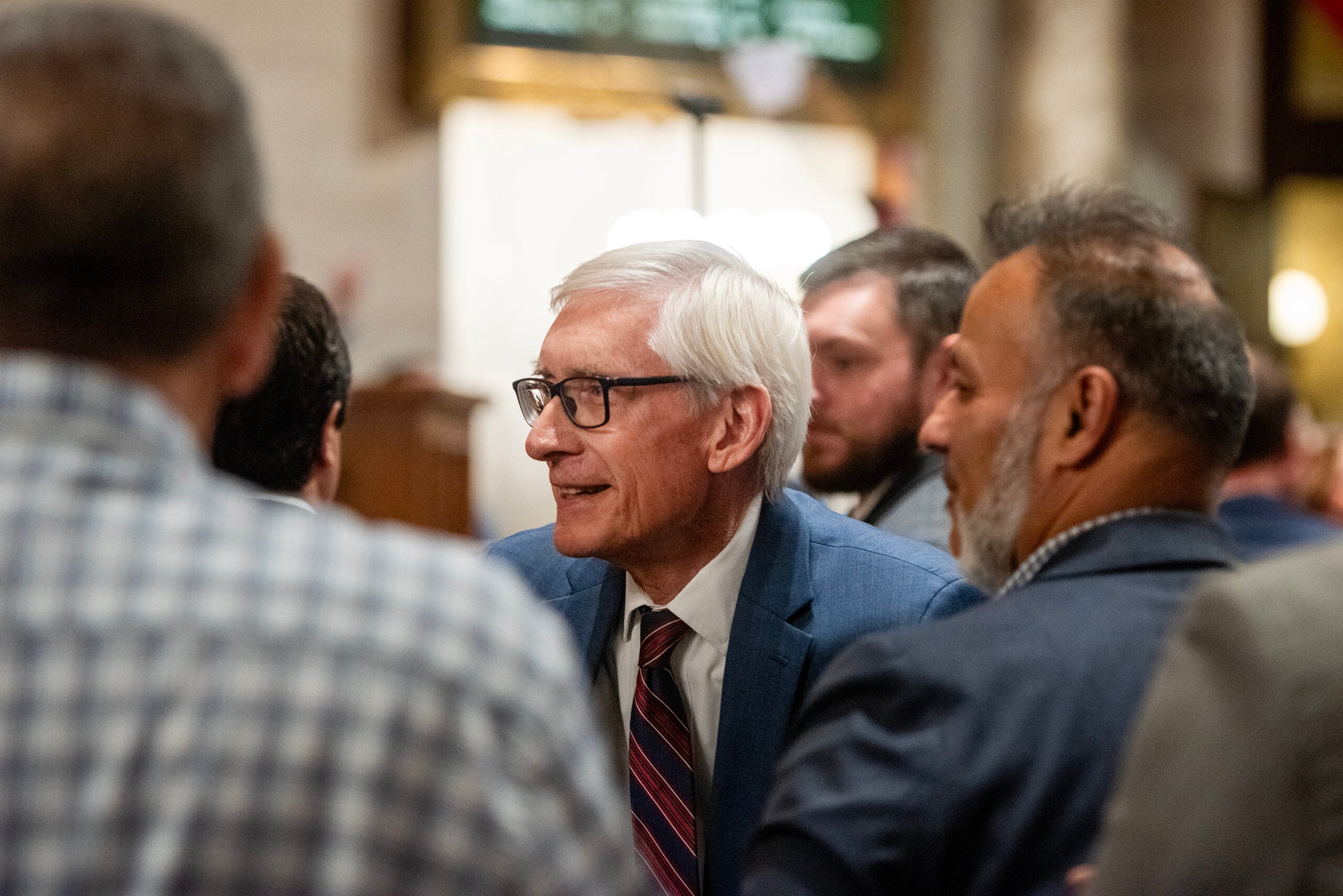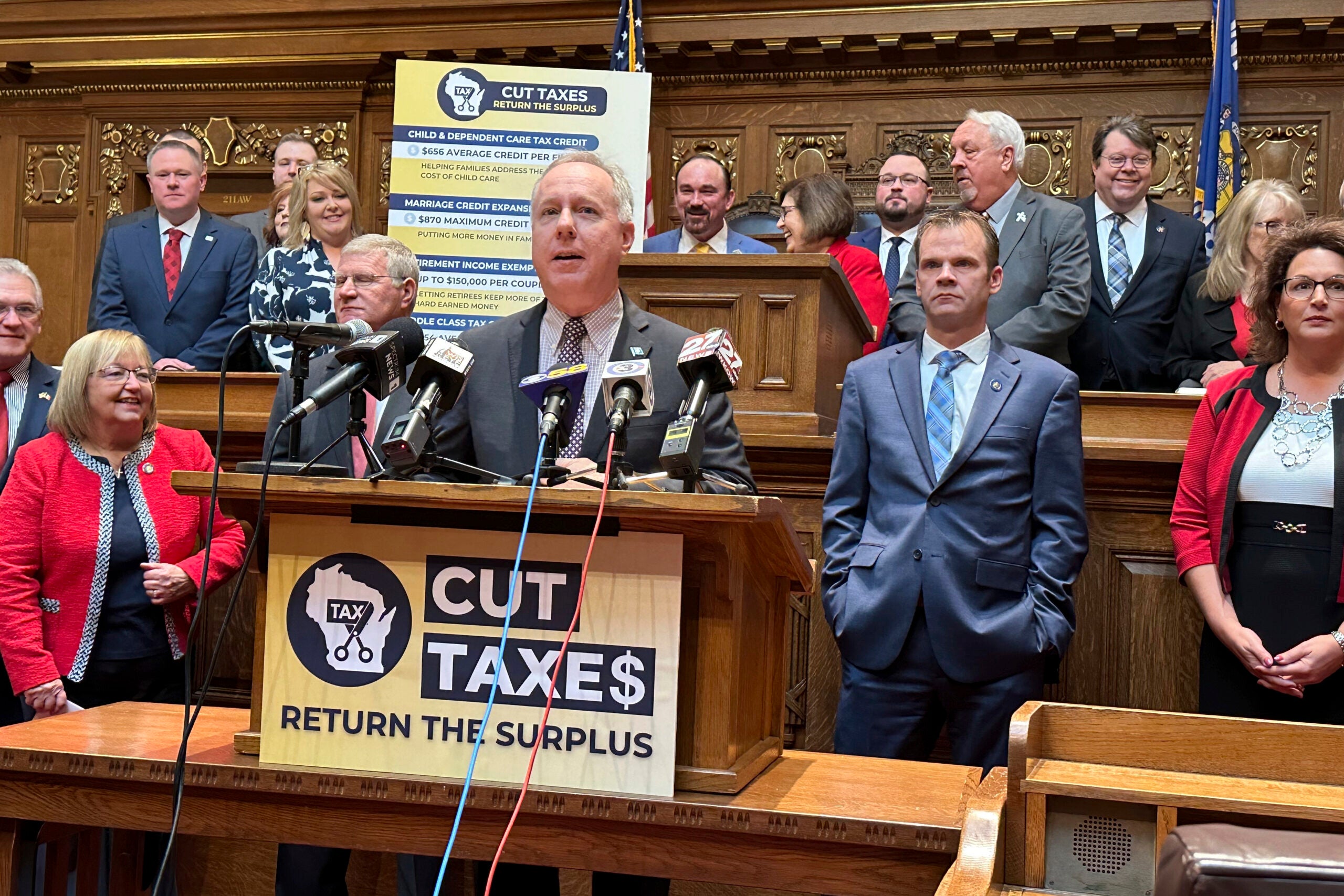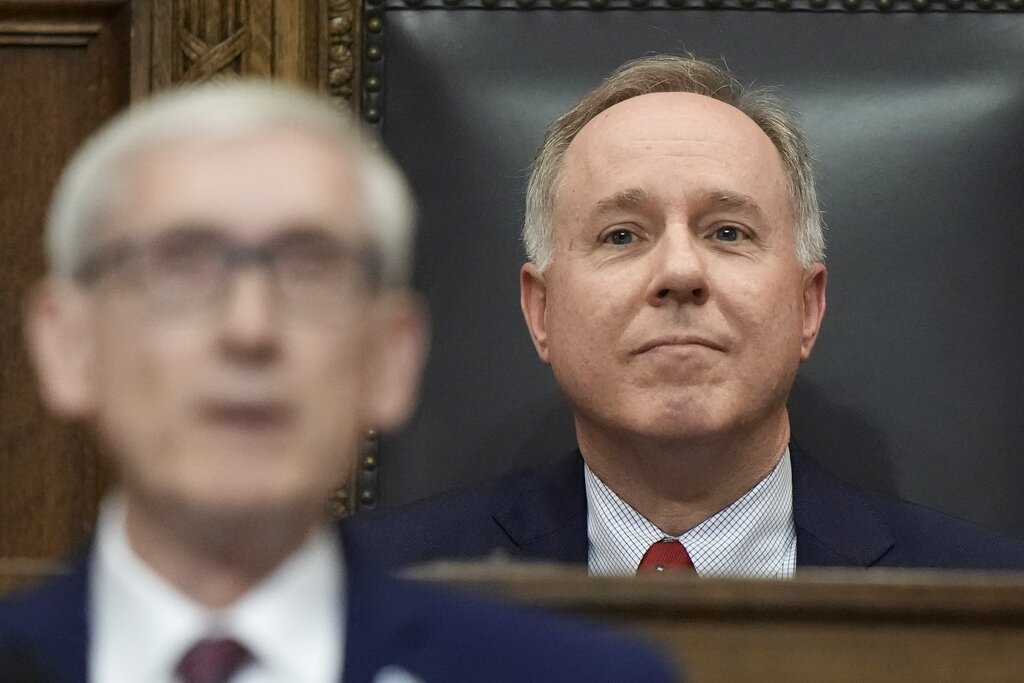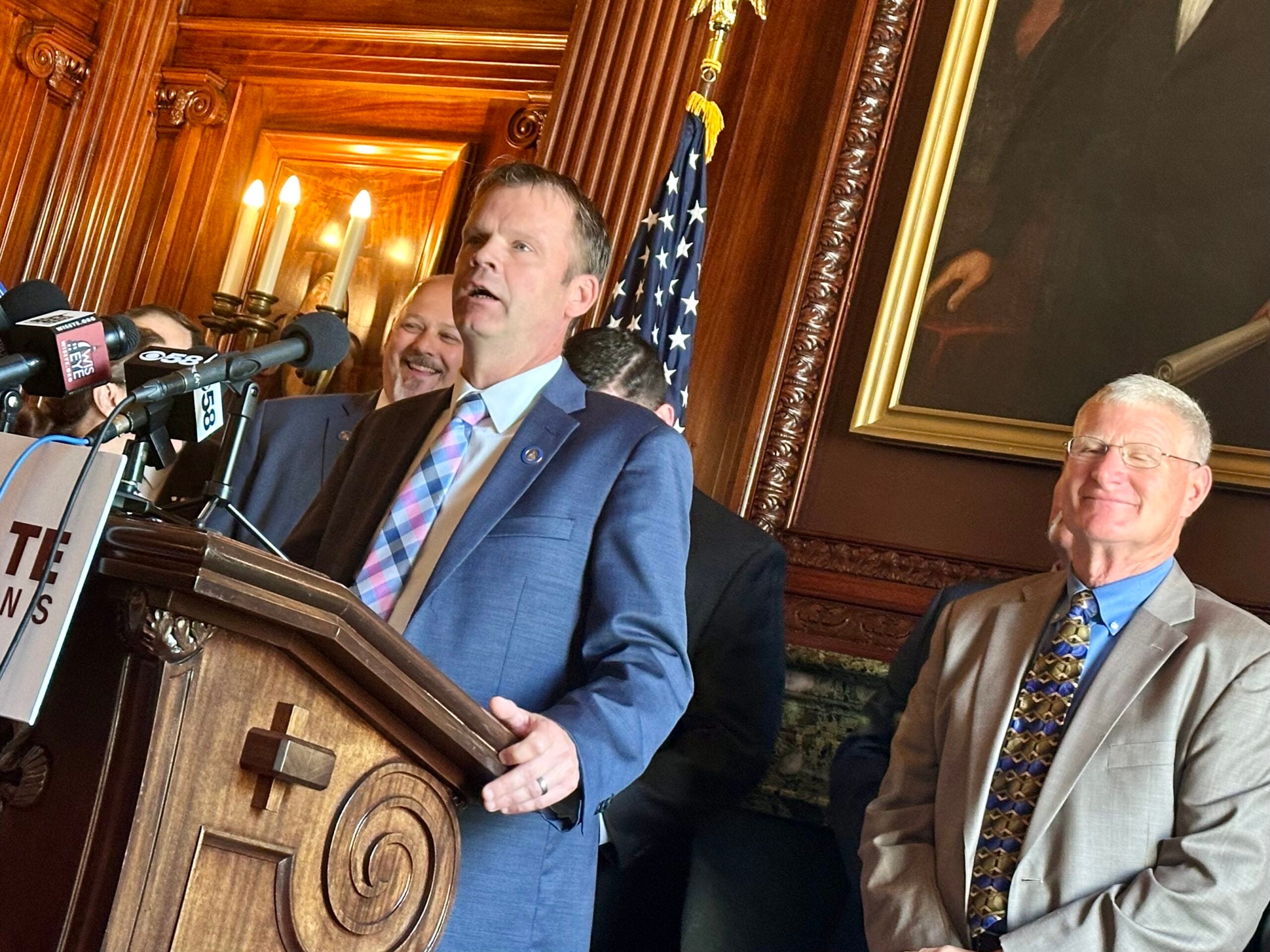Democratic Gov. Tony Evers and Republicans who run the Wisconsin Legislature say they’re done negotiating over the state budget, leaving GOP lawmakers to write the document themselves.
While the impasse is hardly shocking in a state that’s lived under divided government since 2019, it followed what Evers’ office said was months of negotiations. Top Republican leaders, who have often criticized Evers for not engaging with the Legislature, all described the talks as “good faith.”
At issue were some of the big picture decisions in Wisconsin’s budget debate, namely how to use a projected $4.3 billion surplus to enact some combination of tax cuts and spending increases.
News with a little more humanity
WPR’s “Wisconsin Today” newsletter keeps you connected to the state you love without feeling overwhelmed. No paywall. No agenda. No corporate filter.
The governor’s office said Evers was prepared to accept Republicans’ proposed tax cuts, including an income tax cut targeting “middle-class and working families” and the elimination of income taxes for certain retirees. But Evers’ office said Republicans were unable to reach consensus on the governor’s priorities, which included money for child care, K-12 schools and the Universities of Wisconsin system.
“I told Republicans I’d support their half of the deal and their top tax priorities—even though they’re very similar to bills I previously vetoed—because I believe that’s how compromise is supposed to work,” Evers said in a written statement. “Unfortunately, Republicans couldn’t agree to support the top priorities in my half of the deal.”

In a joint statement, Assembly Speaker Robin Vos, R-Rochester, and Rep. Mark Born, R-Beaver Dam, the co-chair of the Legislature’s budget committee, thanked Evers and his staff for trying to reach consensus on large portions of the budget.
“Assembly Republicans remain open to discussions with Governor Evers in hopes of finding areas of agreement,” Vos and Born said. “However after meeting until late last night and again this morning, it appears the two sides remain far apart.”
Senate Majority Leader Devin LeMahieu, R-Oostburg, and Sen. Howard Marklein, R-Spring Green, the other budget committee co-chair, said both sides worked to “do what is best for the state of Wisconsin.”
“However, we have reached a point where Governor Evers’ spending priorities have extended beyond what taxpayers can afford,” LeMahieu and Marklein said.

The end of talks between Evers and GOP leaders means this year’s budget will be built the same way as the last three. The Republican-led Joint Finance Committee will build its own two-year spending plan, agency by agency. The final budget needs to pass the full Assembly and Senate, where rank-and-file lawmakers can also make changes.
So far, that process is off to a slower start than recent years, likely due to the ongoing discussions between Evers and lawmakers behind closed doors. Republicans did remove more than 600 Evers initiatives from the budget on the first day they met in committee and passed a handful of smaller agency budgets at their second meeting.
Despite their often-contentious relationship, Evers and Republicans have found a way to pass budgets on time since he took office, with the governor’s powerful partial veto smoothing out the rough edges.
In the most recent budget, he accepted some but rejected most of a GOP tax cut package. At the same time, he used his partial veto to boost school spending for 400 years, a step the Wisconsin Supreme Court’s liberal majority upheld in April.
Wisconsin Public Radio, © Copyright 2026, Board of Regents of the University of Wisconsin System and Wisconsin Educational Communications Board.






